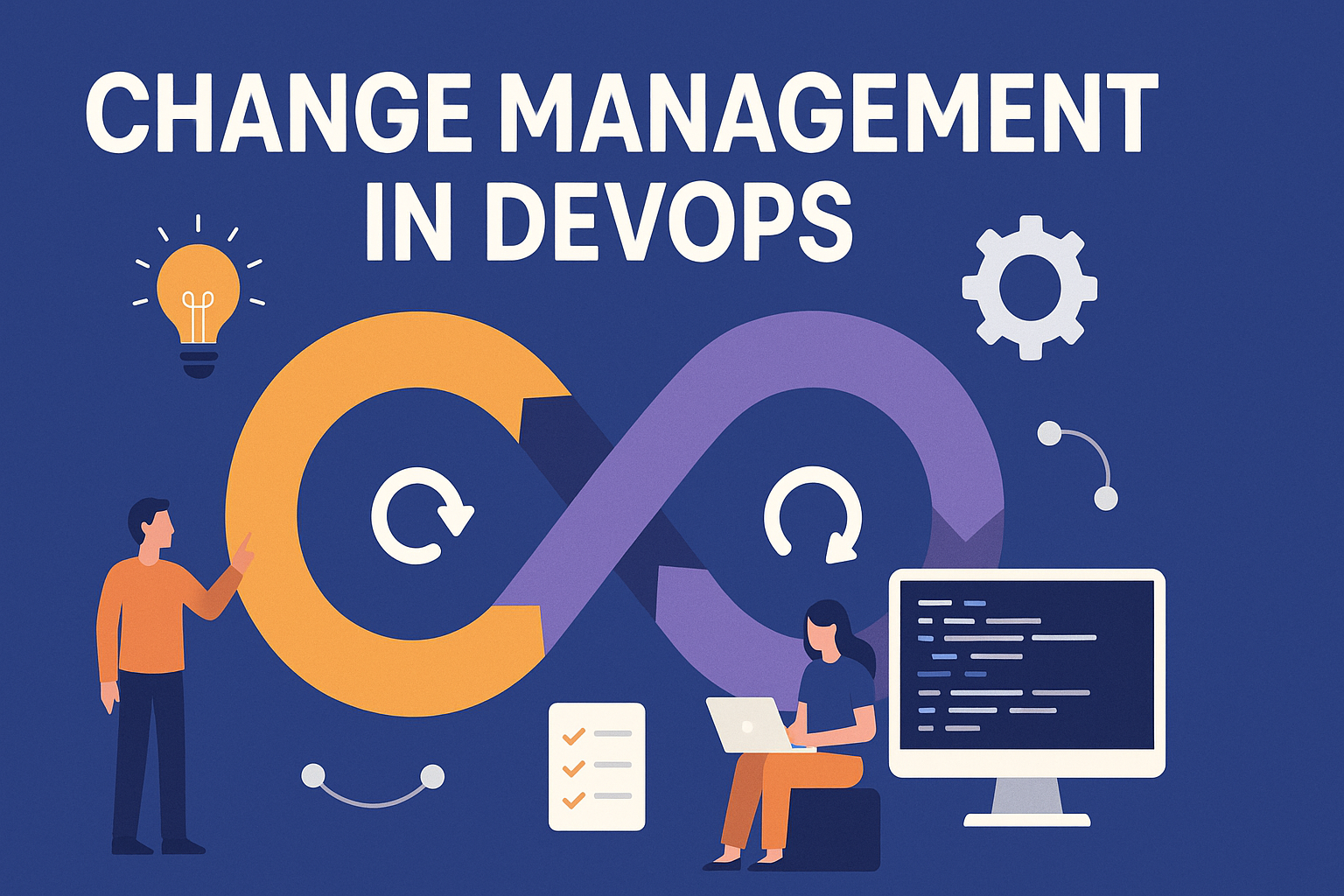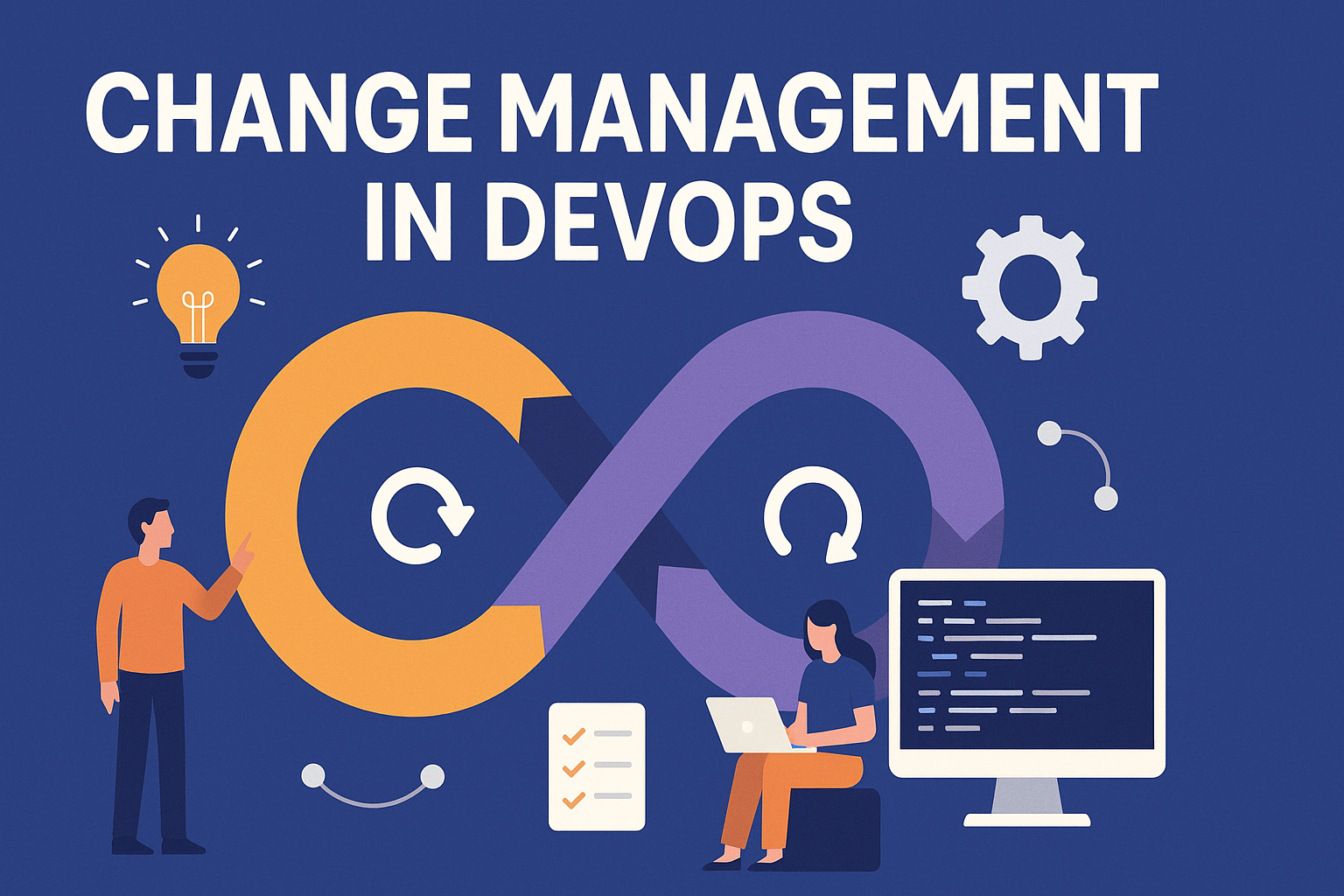Inspirational journeys
Follow the stories of academics and their research expeditions
Change Management in DevOps

Introduction
Change Management in DevOps refers to the systematic approach of managing changes to software systems, infrastructure, configurations, and processes throughout the development, testing, and deployment lifecycle.
Key principles of Change Management
Automation
Use automation for consistent and rapid deployments.
Version Control
Track changes with version control systems like Git.
Testing
Conduct comprehensive testing to ensure quality.
Incremental Changes
Implement small, incremental changes to minimize risk.
Continuous Feedback
Utilize monitoring tools for real-time insights.
Change Management Process in DevOps
Request
Changes are initiated through user requests, bug reports, feature requests, or infrastructure enhancements.
Assessment
The change request is evaluated to assess its impact, risk, and alignment with business objectives. This involves considering factors such as the scope of the change, dependencies, and resource availability.
Planning
A detailed plan is created to implement the change, including timelines, resources, testing requirements, and rollback procedures.
Implementation
Changes are deployed using automated CI/CD pipelines, ensuring consistency and repeatability across environments. Testing is performed at each stage of the pipeline to validate the change.
Verification
The implemented changes are verified against predefined success criteria to ensure they meet quality and performance standards.
Validation
Stakeholders validate the changes to confirm that they meet their requirements and expectations.
Documentation
Changes are documented, including the rationale behind the change, implementation details, and any lessons learned.
Review
Post-implementation reviews are conducted to evaluate the effectiveness of the change and identify areas for improvement in the change management process.
Benefits of Change Management in DevOps
Reduced Risk
By automating and standardizing change processes, DevOps minimizes the risk of human error and reduces the likelihood of service disruptions.
Faster Time to Market
Automation and continuous delivery enable faster and more frequent releases, allowing organizations to respond quickly to market demands and deliver value to customers more efficiently.
Improved Collaboration
DevOps encourages collaboration between development, operations, and other stakeholders, fostering a culture of shared responsibility and accountability for changes.
Enhanced Stability
By promoting small, incremental changes and continuous monitoring, DevOps improves system stability and resilience, leading to higher availability and reliability.
Optimized Resource Utilization
With automated provisioning and deployment, DevOps enables efficient resource utilization, reducing costs associated with manual intervention and downtime.
Conclusion
Change Management in DevOps plays a critical role in streamlining development processes, minimizing operational risks, and fostering a culture of continuous improvement and innovation. By implementing structured workflows and clear protocols for deploying changes, teams can ensure stability, maintain compliance, and accelerate the delivery of new features and enhancements. This approach not only enhances collaboration between development and operations but also strengthens overall system resilience and business agility.
0 Comments





Leave a comment